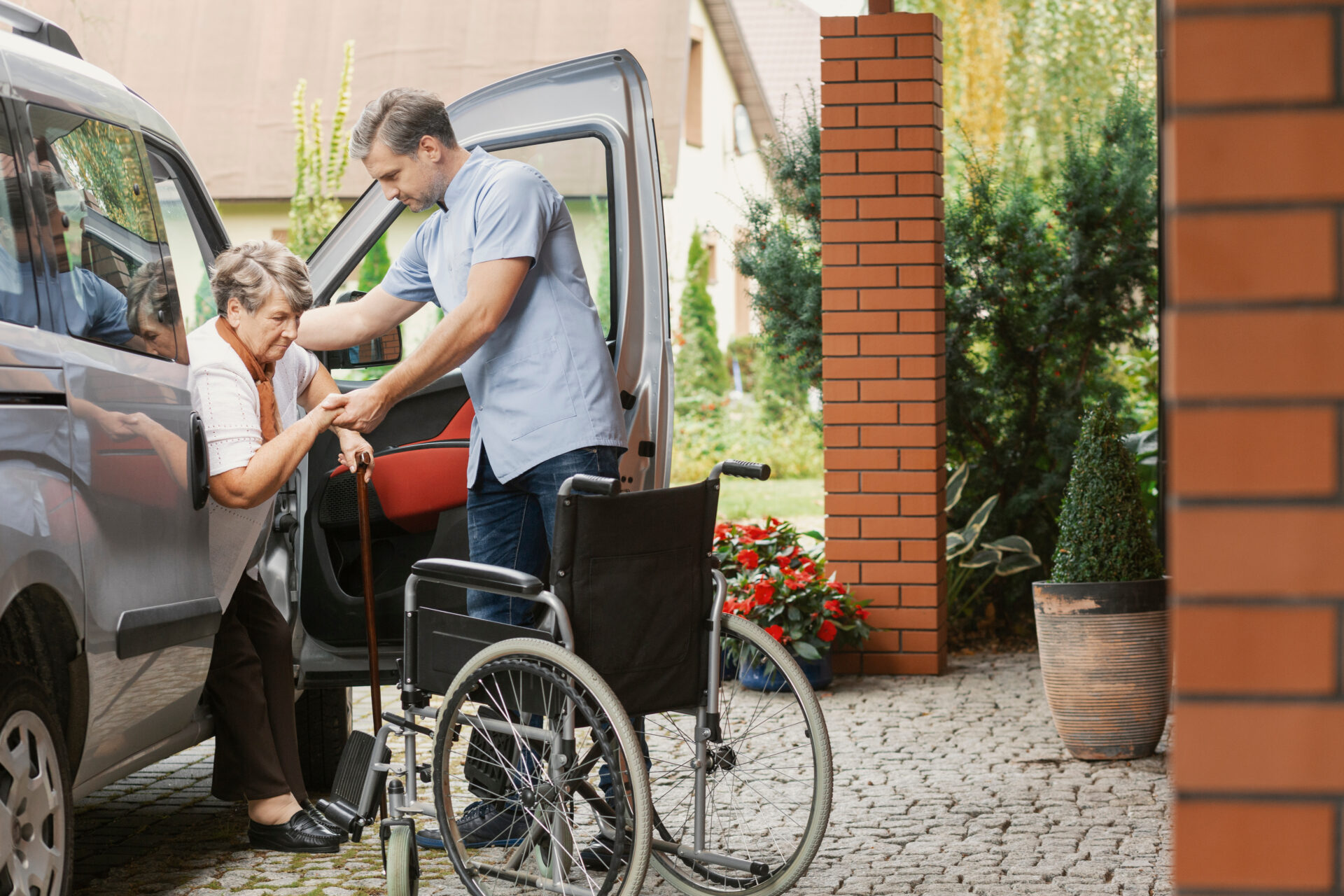
Many West Virginians have found themselves caring for an aging parent. News Director Eric Douglas found himself in that position with his mom and he didn’t know where to turn for help.
This is the fourth story in his series of interviews called “Getting Into Their Reality: Caring For Aging Parents.” Douglas spoke with Vicky Foster, the CEO of Kanawha Valley Senior Services.
Douglas: I’m sure I’m not the only person in this situation trying to figure this stuff out, trying to care for an aging parent. So that’s what led me to you. I assume most of what you do is available throughout the state.
Foster: Yes, there are senior service agencies in every county in West Virginia.
Douglas: Tell me, what’s the big picture? Tell me all the stuff you do.
Foster: The biggest thing for us is our nutrition program. We take home-delivered meals to people who are homebound — can’t cook for themselves. And we do about 600 of those a day. And that’s just the home-delivered part. Then we also have nine centers across Kanawha County where we do congregate meals where people can come and sit down, and socialize with other seniors and eat a nutritious meal.
COVID brought what is known as Grab and Go meals, where they can come and pick up a meal and take it and leave. We also have in-home services. We have what’s called the lighthouse program. Basically, we have caregivers that go into the home, and they’ll provide light housekeeping duties. Sometimes they cook a small meal, they do bathing, it just depends. We develop a plan of care for each client based on what their individualized needs are.
Douglas: I know there are private pay services, but are your services free, reduced cost? How does that work?
Foster: Most of our services, like our nutrition program, are totally free. Donations are accepted but not required. The other programs like the lighthouse program is what’s called a sliding scale fee based on someone’s ability to pay.
Douglas: Yeah, so tell me a little bit more about that. How does somebody get signed up for that or get involved in that?
Foster: They just call our office and they would let our receptionist know what they were looking for. And she would connect them to one of our registered nurses on staff. And they will do an assessment of the client and what their needs are and then best determine how we can help them, what program they fit under. And then we connect them with one of our caregivers and get that going. Most of the senior service centers offer the same services. Some may offer one but not another. But for the most part, they all offer the same services.
Douglas: What’s the scale? How many people are we talking about in your program?
Foster: For the month of October, all across the county, it was almost 15,000 meals.
Douglas: During the pandemic, with everybody separated, how did you cope with that?
Foster: It changed everything for senior centers in general, because we used to have a lot of people that would come in and sit down and it was like a group of friends. And now we still have a lot of people that are still afraid. And so the number of people that come in and stay has dropped, especially for the senior center here in Charleston. Now some of the outlying areas, you know, they’ve come back and they’re in full swing. But for us here in Charleston, the number of people that stay has decreased. It’s worrisome because it’s a socialization for these people. A lot of these people, their children who moved out of state, they don’t have any family and their family is the people at the senior center.
Douglas: But what do you need for them to keep moving? More money, more volunteers?
Foster: We were just working this morning on a certain delivery route where we had someone get hurt, not at work, but on the weekend. We’ve been struggling to cover that route and keep it going, because we’re a nonprofit and so we operate with a lean staff and when one person goes down you’re really racing around trying to figure it out. And we lost most of our volunteers when COVID hit.
Douglas: If a route doesn’t get covered, that means senior citizens are not getting food, they’re not getting a home cooked or warm cooked meal.
Foster: Yes, if we couldn’t get somebody to do it. But if it takes myself or somebody else, we’re going to make sure that they get those meals and if the administrative stuff has to fall by the wayside so that we can go out and deliver the meals, we’re going to make sure they get a meal, whatever it takes.

